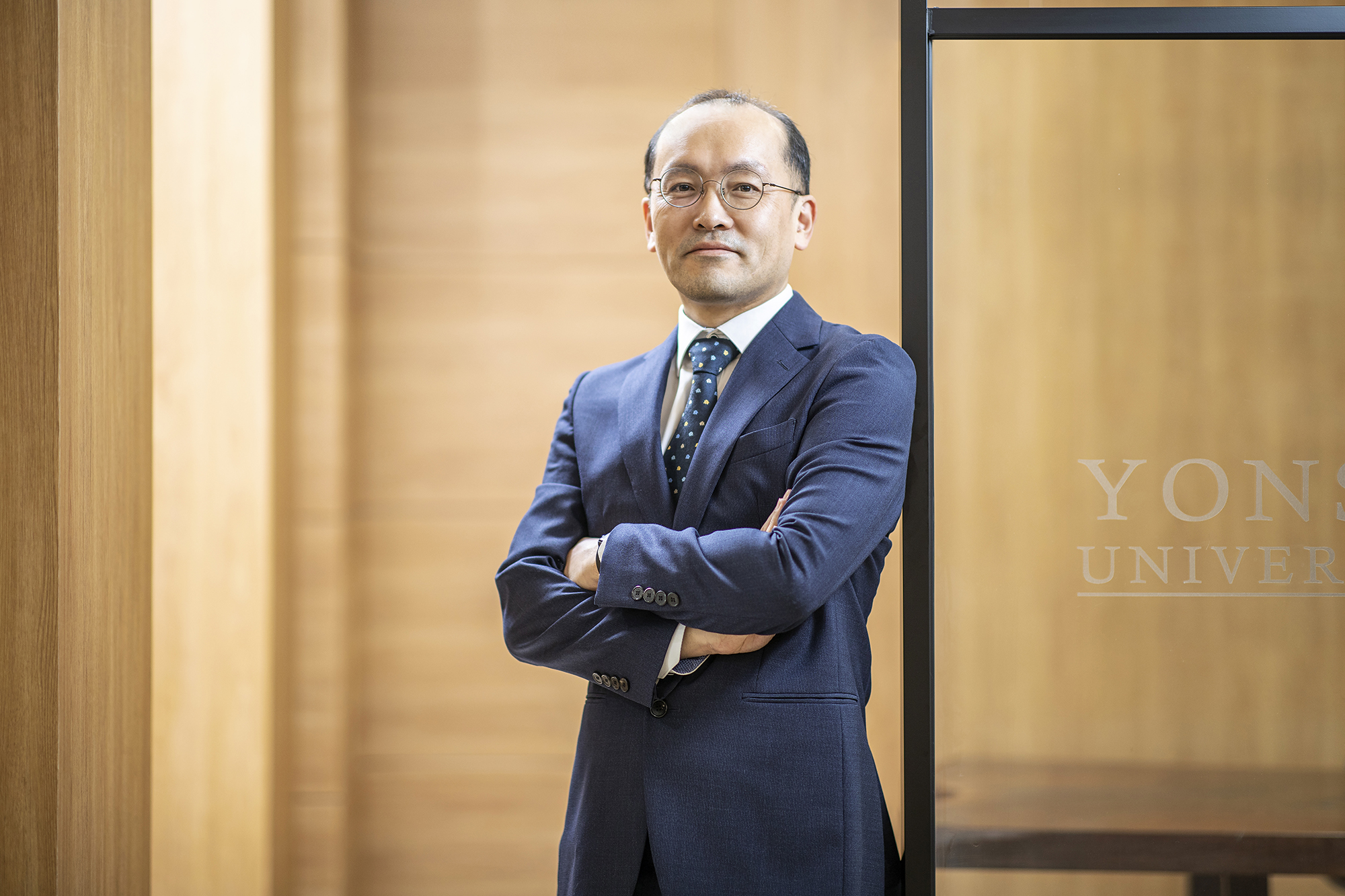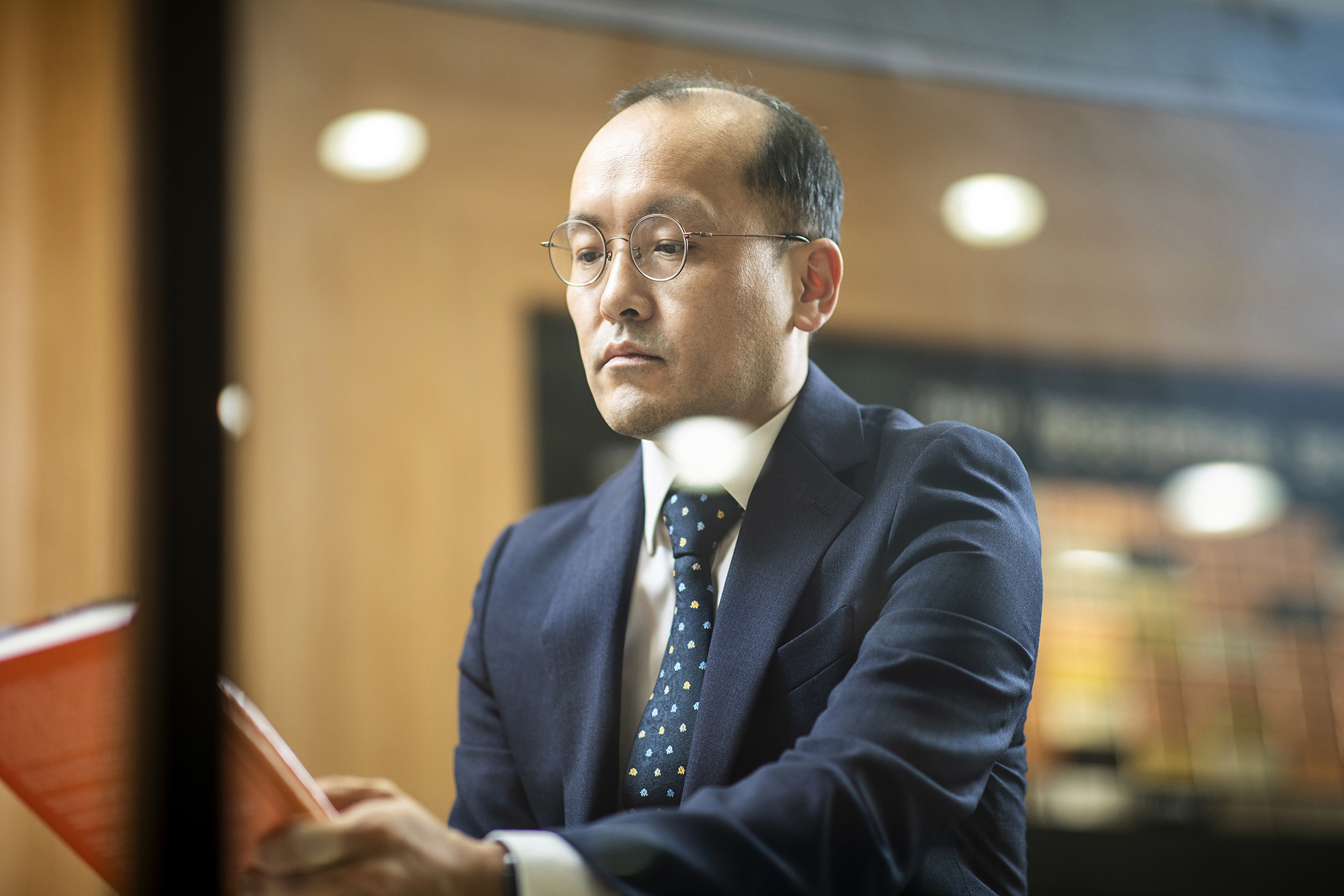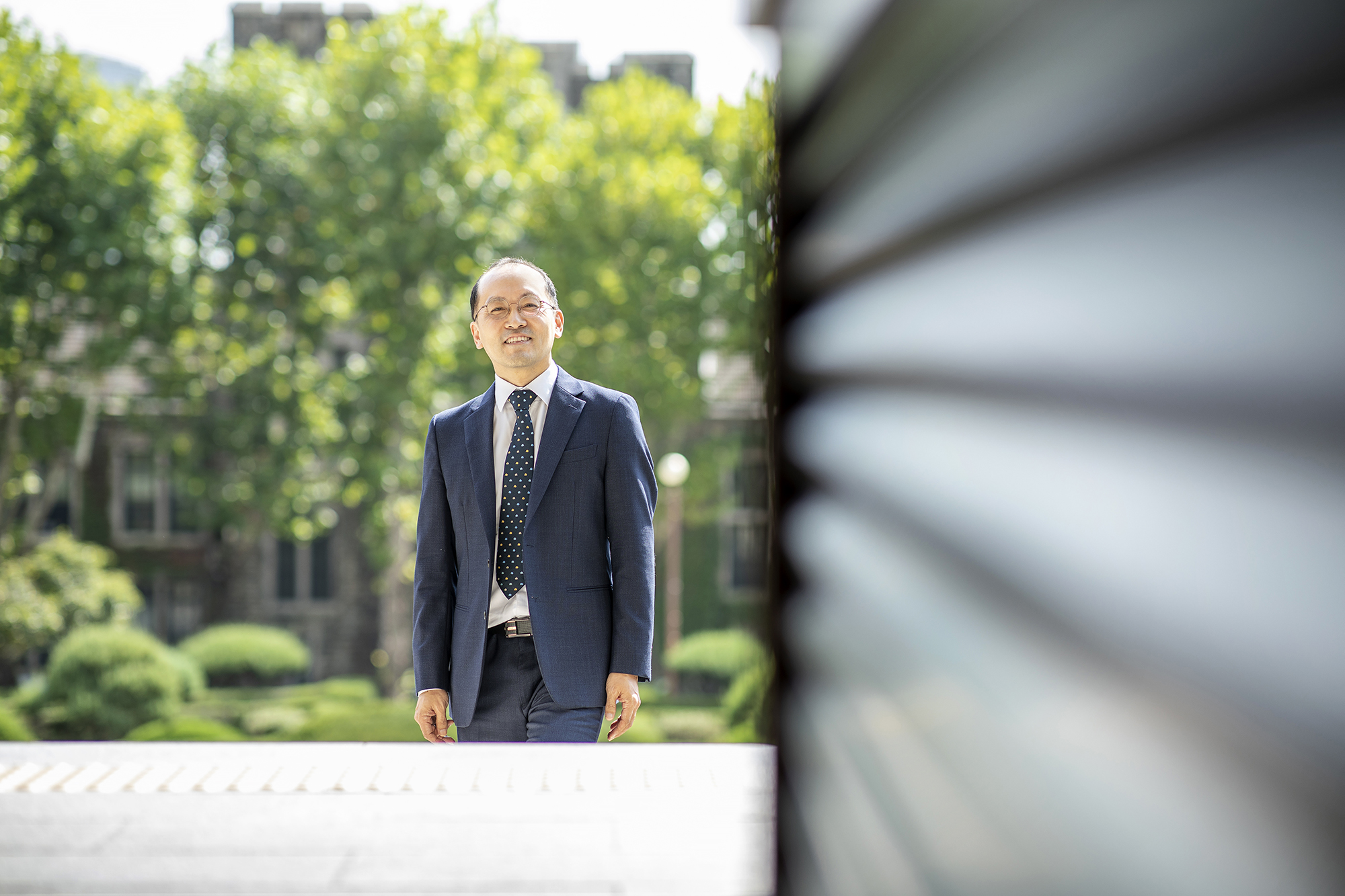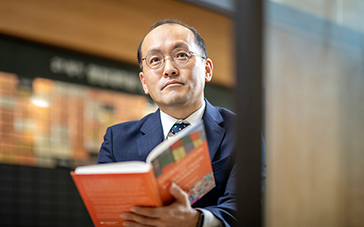- "One Body Spirit" to Overcome COVID-19 September 28, 2021
-
by Professor Choi Young Jun, Department of Public Administration

"For just as each of us has one body with many members, and these members do not all have the same function, so in Christ we, though many, form one body, and each member belongs to all the others." (Romans 12:4-5, NIV)
COVID-19 and Deepening Social Risks
As the COVID-19 pandemic has sustained for more than a year and a half, the suffering is growing throughout society. Today, I started the week with news of a 23-year-old self-employed man who took his life after clearing his studio apartment to pay salaries for his employees. The death of delivery and courier drivers who died of excessive work continues on one side. On the other, those who abandon their hope of life amid economic difficulties continue. Behind these deaths include silent deaths of teenagers and those in their twenties, beginning their first steps in society. Recently, being a person with a stable job and income, looking at the clear sky of the Yonsei campus would make me embarrassed at times.
As a social policy researcher, I have conducted a public survey on the damages inflicted by COVID-19 with my research team in August last year and May this year, carrying out in-depth interviews with citizens of various occupational groups. According to the research conducted in May this year, 50 percent of households saw a drop in income by more than 10 percent. More than 25 percent of households have a constituent member who experienced unemployment or unpaid leave. Nearly 27 percent of households have experienced increased care burden, and approximately 50 percent have experienced social disconnection. Even 40 percent responded that they were reluctant to meet people due to financial burdens. "K-Quarantine," the South Korean government’s comprehensive measures against the virus, has established itself as a brand in the international society. However, according to the OECD report in May this year, South Korea accounted for about 37 percent of the net population was experiencing depression, shown as the highest among the countries surveyed.
The rainstorm of the crisis has hit the country, but the umbrella was too fragile. The existing social security system was centered on regular workers, with the vast majority of the self-employed, special employment workers, and non-regular workers excluded from the system. Among the households that experienced unemployment or unpaid leave, slightly more than 20 percent received benefits from the existing social security system, such as unemployment benefits or special disaster relief funds. In 2020, in exception filed like health, South Korea only used 3.8 percent of its GDP as social policy costs to stabilize people's lives and employment, while countries like the United States and Japan have used around 14 percent. The following expenditure might have helped in establishing financial stability to some extent. Still, it was far from enough for individuals to have the idea that the state would protect their lives in times of crisis, leading them to be more obsessed with stable assets: "real estate."
Come to think of it, we have faced the crisis of COVID-19, although we have still not solved various assignments from the 1997 financial crisis, and these challenges are evolving to a much higher level. The meager birth rate of 0.84 reflects the lives of young people, the growing number of small business owners and elderly poverty that follows when they fail, the labor market with sustained gender inequality, parents struggling to work excessively hoping to give their children a better life, and rural communities drying up amid the deepening concentration of Seoul. Like the challenges derived from the financial crisis in 1997, the economic recessions from the COVID-19 are bringing up new challenges that we have not thought of, posing the possibility of haunting our society in the next few decades.

From Self-Sustainment to "One Body Spirit"
Where can the foundation and strength to survive this difficult period come from? The answer lies in "solidarity." In plain terms, solidarity refers to the "one body spirit," which is expressed in the Epistle to the Romans of the Bible. It is confessing that we are interconnected beings, admitting the difference in functions with different purposes and recognizing each other's existences and roles. It is also acknowledging that there cannot be men without women, there cannot be older people without young people, and there cannot be only cities without rural areas. It is admitting that there cannot be good jobs without good business owners, and there cannot be a healthy corporation without healthy consumers. The sad thing is that despite South Korea's transition to an affluent society, it has failed to escape from the status of a competitive society that strives to protect individuals' interests rather than being a society with the "one body spirit."
What is needed to create solidarity and drive fundamental changes in our society? First of all, equal support is required to make "value" instead of solely focusing on producing "price." In this capitalistic society, we cannot deny the importance of price. Still, the natural environment, labor, and social capital, which were sacrificed while focusing only on costs, are now returning to the backfire of climate change and low birth rates that ultimately lower the sustainability of our society. The first step towards achieving solidary would be recognizing social values that we used to neglect and contemplating ways to move forward together instead of focusing on maximizing immediate profit and GDP. Professor William Nordhaus of Yale University, the author of The Climate Casino, estimated that carbon emissions efforts could be costly by 2050 but would return to greater benefits afterward. Recognition of value will ultimately lead to multiple steps forward, even if it brings a step backward momentarily.
Secondly, there is a need to give up. It is difficult for solidarity to be achieved without someone's preemptive effort and sacrifice. And it is difficult to demand sacrifice from those struggling with their lives every day. Maybe there are already people enjoying comfortable lives at the expense of their sacrifices. While many suffered from the COVID-19 pandemic, few did not experience any reduction in income instead of an increase in wealth. Solidarity requires giving up. In the book Success and Luck, economist Robert H. Frank once pointed out that personal success consists of many lucks. Even for myself who is writing this, there are many amazing stories to tell as I entered Yonsei University as an undergraduate to become a professor eventually. The family environment, specific time periods, coincidences, and timely opportunities have added up to become who I am today. To Christians, such lucks are known as a "gift." Isn't it time to think of God's gift without a price tag?
Thirdly, bolder investment is needed for young people, the key players who will create and lead a society of high solidarity with sustainable economies and social values. As a teacher teaching students and a researcher researching the youth, the reality of young people in today's society is indeed heartbreaking. Last year, I was surprised to see that eight out of every ten respondents in a survey responded that they are experiencing depression or mental difficulties. When telling my students about the result, they all mentioned that it was not that surprising. Fewer than three out of 10 young people answered positively about the prospect of a stable job or income over the next five years. Additionally, a high percentage of men stated that men are discriminated against, and there was also a high percentage of women saying that women are discriminated against. Nearly 60 percent of men and 80 percent of women responded negatively to the idea of getting married or having children. It is a time when the value of "together" and "cooperation" are becoming more critical than ever, and it is also a time when we need young people with creative and risk-taking attitudes to solve socio-economic challenges. Still, young people are intimidated more than ever. On the one hand, efforts should be made to address their instability, and on the other hand, they should be able to strengthen their ability to move toward the future.

Into an Era of Co-existence, Instead of Co-destruction
All proposals for solidarity mentioned above are ways that are strange and unfamiliar to us. As such, concerns are deep. Can investment and recognition of long-term values, not current monetary benefits, really bring positive results? Will I be able to reach out first and deliver to society - sometimes by tax or donation - and make the proper use of the money to produce the intended results? Wouldn't a bold investment in youth make them more immature and become a tremendous waste instead of generating positive results? The logic we were unable to solve challenges such as low birth rates, small business owners, and gender inequality in the past 20 years was similar. That is why we have always made the same mistake by failing to walk away from the path of familiarity while hoping for a difference in the result. Transitional thinking is needed in a time of significant transition. Even if this one-body consciousness does not lead to a "price" in the future, it is normatively right to recognize its "value."
"The truth will set you free," the founding philosophy of Yonsei University that greets you when you walk into the campus, catches your attention more than ever nowadays. Yonsei University has always served as a lantern in the dark since its opening. Even now, Yonsei is educating and demonstrating the leadership of serving through the Institute for Global Engagement & Empowerment (IGEE) and the Institute for Higher Education Innovation (IHEI). Its alumni are lighting up their roles in various parts of society. I am proud of Yonsei's history and the present. During this particular time when campus without students continues with two consecutive cancellations of the Yon-Ko Games, it is time for fellow Yonseians to take the lead in the transition to coexistence, not co-destruction.
Professor Choi Young Jun of the Department of Public Administration is the Director of the Institute for Welfare State Research and Chairman of the East Asian Policy Research Network. He is researching social policy, welfare state, and comparative policy.
show mobile menu
mobile menu




